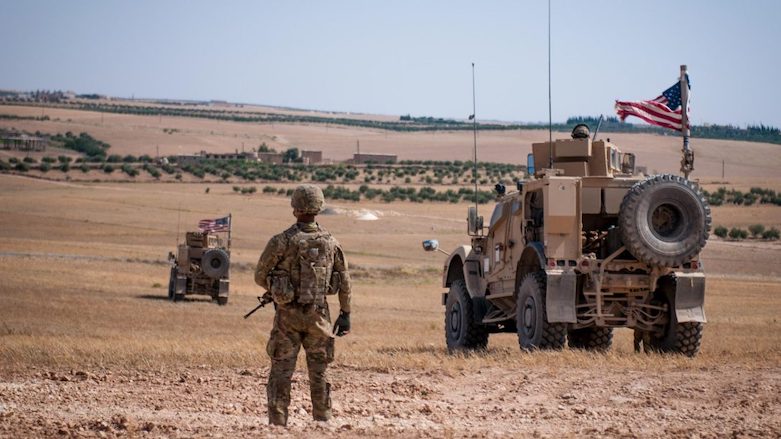US warns Turkey against attacking northeast Syria

WASHINGTON DC (Kurdistan 24) –The US has warned Ankara against any attack into northeast Syria, following ominous statements by Turkish President Recep Tayyip Erdogan.
Another round of talks between the US and Turkey are slated to begin on Monday on the future of northeast Syria, which the Kurdish-led Syrian Democratic Forces (SDF) liberated from the Islamic State in a four year military campaign, backed by the US-led Coalition.
On Sunday, however, Erdogan threatened to attack the area. “We entered Afrin, Jablus, al-Bab,” he said, referring to towns in northwest Syria, where the US has not had a military presence.
And “now we will enter east of the Euphrates,” Erdogan continued—where US forces are, in fact, located, along with their SDF partners.
“We shared this with Russia and the US,” he added.
However, the US responded on the same day, warning Ankara on Sunday against any such move.
“Any uncoordinated military operations by Turkey” would threaten the security and stability of the area, State Department Spokesperson Morgan Ortagus told Kurdistan 24.
“Such unilateral military action into northeast Syria, particularly as US personnel may be present or in the vicinity, while our and local Syrian partner’s operations against ISIS holdouts are continuing, is of grave concern,” she continued.
As Ortagus noted, the so-called Islamic State is not defeated. US officials have repeatedly explain that while it has lost the territory it once controlled, it has gone underground and remains a danger.
“We believe” that “dialogue is the only way to secure the border area in a sustainable manner,” Ortagus said, as she affirmed, “We continue intensive discussions with Turkey on a safe zone to address their legitimate security concerns along the Turkey-Syria border.”
“We would find” any unilateral military action “unacceptable” and “thus urge Turkey once again to work with us on a joint approach,” she concluded.
On July 24, Amb. James Jeffrey, US Special Representative for Syria and Special Envoy for the Global Coalition to Defeat ISIS, ended three days of talks in Ankara on the future of northeast Syria, but those discussions produced no agreement.
Read More: Talks on Syria safe zone end without agreement, as US Senate pushes to sanction Turkey for S-400
Jeffrey subsequently briefed reporters and reiterated the US commitment to the SDF. “We are committed to those who have fought with us not being attacked and not being harmed by anyone,” Jeffrey said, in response to a question from Kurdistan 24.
Significantly, Jeffrey added, “The President made that clear publicly.”
Read More: US reaffirms its commitment to Syrian Democratic Forces
Jeffrey explained that the biggest problem in reaching an agreement with Turkey on northeast Syria was the size of the safe zone. “The US is proposing a security zone of five to fourteen kilometers, he said, “with heavy weapons drawn further back.”
The Turkish state broadcaster, TRT World, reporting Erdogan’s threats on Sunday, articulated Ankara’s position: Turkey wants a 32 kilometer wide safe zone and an end to US support for the Kurdish, People’s Protection Units (YPG), which it considers the Syrian extension of the Kurdistan Worker’s Party (PKK.)
The US and Turkey would appear at sharp odds. However, when Jeffrey briefed reporters on Thursday he seemed reasonably confident that the two sides would be able to reach an agreement and, specifically, one “that we can sell to the people of northeast Syria,” adding, “that’s very important.”
Read More: Syriac Christians call on US Army to stop possible Turkish invasion in northeast Syria
Possibly, Turkey is laying out a very tough bargaining position in advance of talks this week with the US. Yet it is also possible that Turkey might, at some time, act on its threats.
In addition to Kurdish apprehensions about a Turkish cross-border assault, other minorities, including Christians, have expressed their concerns.
